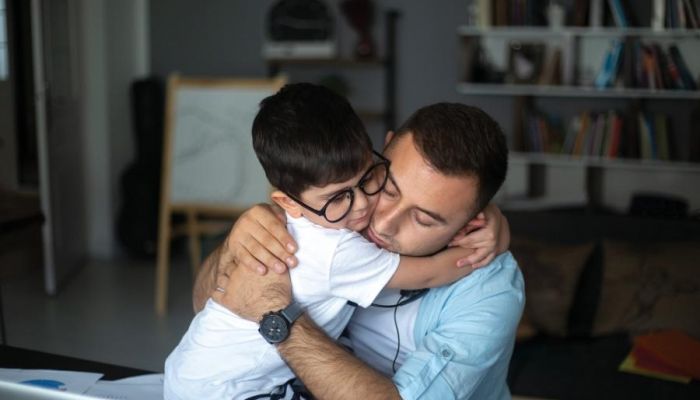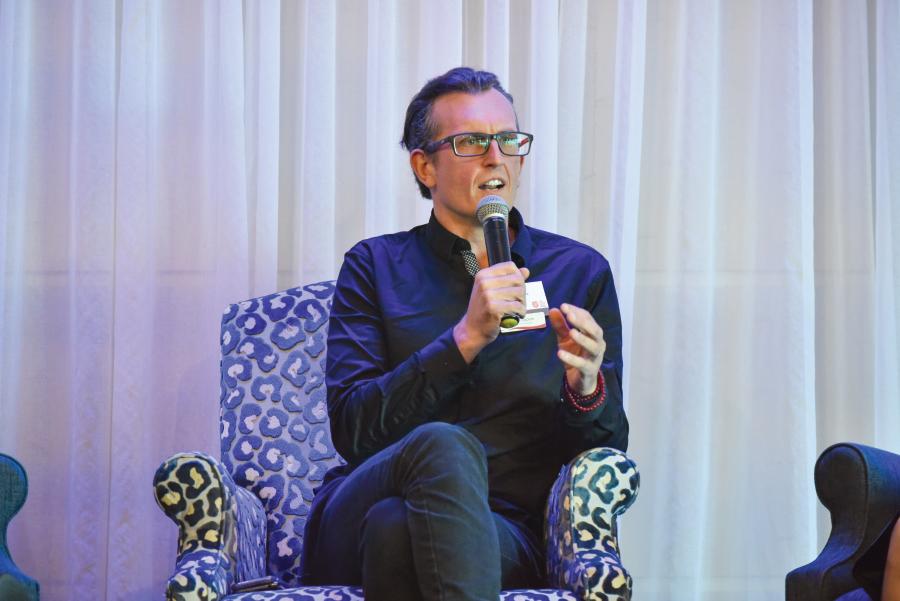parenting for a peaceful world
22 April 2022

Talking to kids about war, natural disasters, and trauma.
Words Maris Depers
Psychologist Maris Depers is a case manager at the Salvos First Floor Program in Wollongong, NSW, and online. The program is a holistic drug and alcohol service supporting and empowering families and individuals impacted by substance abuse, mental health issues, grief, and loss. Below, Maris speaks to Salvos Magazine about talking to children about conflict and traumatic events.
Salvos Magazine: Where do you start with a topic like this?
Maris Depers: Firstly, it starts with the age of the child. For those under five, who are cognitively and emotionally vulnerable, we should be limiting their exposure to news reports, graphic images, and similar content.
In the five to eight age group, the exposure should still be limited and controlled. Research shows that kids this age will increasingly be aware of and privy to information being shared in other families, at school, and in the community, and will be absorbing it whether we know it or not.
SM: Can you suggest some ways parents can create opportunities for discussion?
MD: There are several steps parents can take.
Check in with the kids
Find out what the kids are seeing and hearing and what sense they’re making of the seemingly endless progression of horrible things in our world. This can create a great opportunity for parents or caregivers to connect with their kids’ feelings and find out what is going on in their inner world.
If we are willing to talk about what is going on and share our feelings too, it helps gives them words to frame events. It also helps equip them to navigate these realities and to grow their resilience and capacity to cope.
Discussions can also open doors to transformational thinking – talking about becoming the best versions of ourselves and what we can do to help in these tragedies and preventing future ones from occurring.
Link discussion to the developmental stage of the child
For kids under six, linking acts of war and aggression to their own bodies and using everyday examples can assist – making sure they know that nobody has a right to touch them or treat them aggressively. Help them see that, just like an act of aggression, such as throwing toys or hitting someone, has a big impact on them, so too does that occur between nations. Bullying and big emotions can quickly become acts of violence.
For later primary school-aged children, focusing on the topic of consent can help. Any act of aggression that a country doesn’t consent to is a dangerous one. Help the young person understand how they can use that information to make decisions in their own world.
We can reassure our children if their response is fear-based. Reassure them, as realistically as possible, that they are safe.
Make a difference
Most young people want to make the world a safer, fairer, more just place. Parents and caregivers can help their young people do something with that feeling. If they are sad, that is a valid response. Crying, talking it through, using art – these are valid responses we can help young people use and regulate.
We can also value-add – help them grow empathy towards victims of war. Empathy is a powerful tool we want young people to learn and take into their families and communities.
Helping children respond to feelings of outrage is also important. Help them make a stand – find a local petition to sign, write a letter of support, donate to a charity involved in the tragedy. It’s important and healthy to have opportunities to turn feelings into action, however limited. This is also something you can do as a family.
The older a child gets, the more information they can absorb and process – the drivers of war, human greed and malice, geopolitical nuances. Hopefully, we can equip them to be the next generation that can stop war.
It’s the same with floods and other traumas closer to home.
 Maris Depers emphasises the importance of discussing traumatic events with children.
Maris Depers emphasises the importance of discussing traumatic events with children.
EARLY-MID TEENAGERS
The aims would be the same for this group – not denying their feelings, encouraging them to have a voice, and reassuring them that they can still get about their day.
This group is more prone to depression and anxiety – we need to be mindful of this for older primary school children and even more so for adolescents. If you know they have existing anxiety or similar issues, are shy or deep thinkers, or become highly emotional, then it’s even more important to be talking about and exploring what is happening, what impact it will have on their mental health, and to connect them with managing self-help, care, and anxiety issues.
They may also want to seek professional help and develop their own ways of managing the anxiety that comes up.
Older kids are also more connected to social media and can sign their own petitions and seek out organisations to engage with. Their opinions around what is happening may not agree with yours, but it’s important to acknowledge them and keep the discussions open.
We can all feel overwhelmed and powerless too, but, as citizens of the world, we also have a duty not to turn away from this as well – for ourselves, our families, our communities, and for those people impacted.
Find a way to acknowledge your own feelings and take care of yourself but contribute in whatever way you can.
STORIES OF HOPE
As well as acknowledging how sad it all is, we all need to see that there are also powerful stories of action and hope.
As we find them, use any opportunity to talk to your kids about how caring people are and magnify this, so it doesn’t get lost. This is not a denial of what is happening. Rather, it’s a bookend, a place that grows. We can bookend it with hope and opportunities to make it different, to connect with the reality that it’s not happening here. We can also explain why we have safety but check our language too because not everyone is safe here.
RESOURCES
There are many parenting resources for families online, such as the Raising Children Network (raisingchildren.net.au)
You can also access social justice organisations and sites such as Verywell Mind (verywellmind.com).
Read widely, and resource young people as well. Let’s all be parenting for a peaceful world.

Comments
No comments yet - be the first.